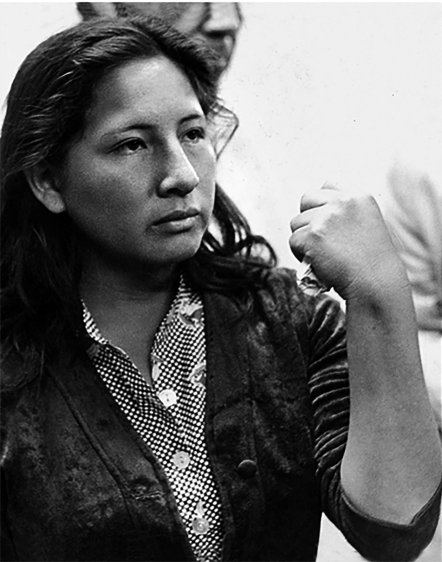This article is translated into English from an article published on Tjen Folket Media on 23/1/2022, which was translated from an article that was published by Periódico Mural on 27.11.2021
Edith Lagos Saénz was born on November 27, 1962 and was buried after her short and intense 19 years, on September 3, 1982, at the start of the Peruvian War. She was murdered at the hands of the repression forces.
From a young age she had a lively intellect, which together with nostalgic profundity produced an exquisite sensitivity which was later expressed in her poetry and in her revolutionary actions. She attended a nunnery school and also wanted to be one of them, led by a pious ideal and showed early commitment to the poor. As a middle school student, she had to participate in the defense of public education, and became active in the student movement which had intense and heroic days in her hometown Huamanga, Ayacucho, in the years 78 and 79.
Riots in the city and the student-peasant unit were an expression of the new era, it is no coincidence that Ayacucho was the most intense light at the beginning of the armed struggle.
In 1979, Edith moved to Lima to study law at the University of San Martin de Porres, but left the following year to dedicate herself completely to the revolution, joining other women in various operations. That same year, she was arrested and tortured, but maintained great firmness in front of those who captured her. Equipped with the extraordinary scientific ideology of the proletariat, and which defended it unreservedly as the basis of party unity, she soon became a symbol of revolutionary women and youth among the masses. Along with other young communists, she was the most advanced of her generation. She was also a great poet, her compatibility was total, it was a political standpoint and an ethical and aesthetic standpoint; When she was in prison, she won a poetry competition organized by the National Institute of Culture.In one of her poems she says:

My eyes have listened to so many things.
Tantas cosas han visto mis ojos.
Mis ojos han lagrimeado de tanto dolor
Y es que el dolor,
En el labio se convertió en grito.
(Doloroso grito de la vida)
English translation:
My ears have heard so much.
My eyes have seen so many things.
My eyes have tears of so much pain
And that’s the pain,
There was a scream on my lip.
(Life’s painful cry)
In her poetry, Edith expresses the deep melancholy of the Peruvian highlands, the pain that is everywhere, made of cold, hunger and poverty, of exploitation and silence, of enclosed rage, of revolutionary hope, of deep love for life, even its ultimate consequences.
On March 3, 1982, she was released in an escape operation led by militants from the Peruvian Communist Party, and continued her revolutionary work in Andahuaylas. On September 3 of the same year, she was murdered after an alleged shooting episode with the police; in fact, all indications are that she was summarily captured, tortured and murdered by the old reactionary state.
The remains of the revolutionary poet were transferred to Ayacucho, where after the funeral she was followed by thousands in the streets with battle cries. Her coffin was draped with the red hammer and sickle flag, the symbol of the Peruvian Communist Party. Edith, like the wild grass, is born and reborn in the people, in the struggles and in her verses. On her grave the following verse, written by her, can be read:
Hierba Silvestre, aroma puro
Te ruego acompañarme en mi camino
Serás mi bálsamo en mi tragedia
Seras mi aliento en mi gloria
Seras mi amiga
cuando crezcas
sobre mi tumba.
English translation:
Wild grass, pure aroma
I ask you to follow me on my path
You will be my balm in my tragedy
You will be my breath in my glory
You will be my friend
when you grow up
on my grave.

